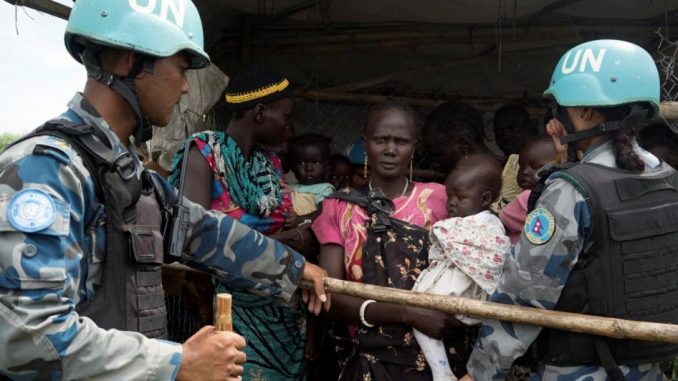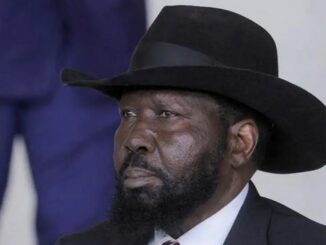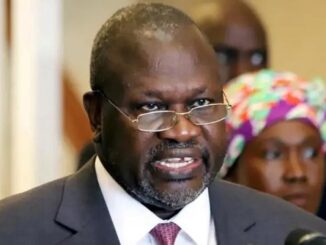
In July, armed United Nations peacekeepers stood by in South Sudan’s capital while women were raped mere meters away. They retreated from their positions, abandoning the civilians they were sent to protect. This week, the Secretary-General Ban Ki-moon responded to these findings by firing the commander of the UN peacekeeping forces in South Sudan at the time.
Ban’s decision follows the release of a new independent inquiry, which paints a disturbing picture of the UN’s response to violent clashes in which scores of civilians were killed in the capital Juba in July. More than 200 women – including expatriate aid workers – were raped and gang raped during and after the attacks. Two peacekeepers were killed by shells fired near the base. Throughout the mayhem, UN forces did little to respond and help those in danger, despite a clear mandate allowing them to use lethal force to protect civilians.
United Nations Mission in South Sudan (UNMISS) peacekeepers need to leave their bases and armoured vehicles to better identify threats to civilian lives and prevent rapes on their doorstep. The mission also needs to make the most out of its civilian component to improve its early warning capacities and political engagement with the parties on the ground. The UN needs to learn from its past mistakes, reassert itself and bring the protection of civilians front and center.





Be the first to comment